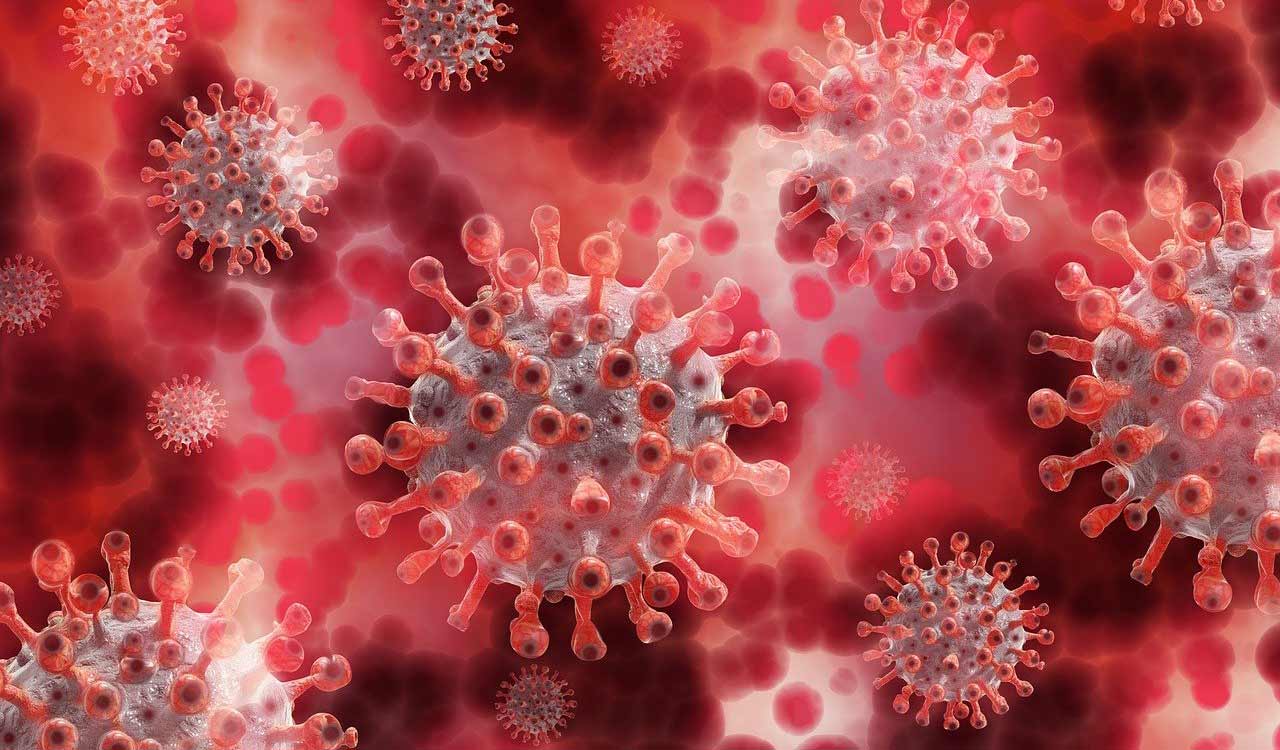Booster dose neutralizes COVID-19 Omicron variant: Study
Washington: An international team of researchers recently studied the sensitivity of Omicron to antibodies compared with the currently dominant Delta variant. The study about this variant has been published in the ‘Nature Journal’. The new COVID-19 Omicron variant is more transmissible than the Delta variant. However, its biological characteristics are still relatively unknown. In South […]

Washington: An international team of researchers recently studied the sensitivity of Omicron to antibodies compared with the currently dominant Delta variant.
The study about this variant has been published in the ‘Nature Journal’.
The new COVID-19 Omicron variant is more transmissible than the Delta variant. However, its biological characteristics are still relatively unknown.
In South Africa, the Omicron variant replaced the other viruses within a few weeks and led to a sharp increase in the number of cases diagnosed. Analyses in various countries indicate that the doubling time for cases is approximately 2 to 4 days. Omicron has been detected in dozens of countries, including France, and became dominant by the end of 2021.
In a new study supported by the European Union’s Health Emergency Preparedness and Response Authority (HERA), scientists from the Institut Pasteur and the Vaccine Research Institute, in collaboration with KU Leuven (Leuven, Belgium), Orleans Regional Hospital, Hospital Europeen Georges Pompidou (AP-HP) and Inserm, studied the sensitivity of Omicron to antibodies compared with the currently dominant Delta variant.
The aim of the study was to characterize the efficacy of therapeutic antibodies, as well as antibodies developed by individuals previously infected with SARS-CoV-2 or vaccinated, in neutralizing this new variant.
The scientists from KU Leuven isolated the Omicron variant of SARS-CoV-2 from a nasal sample of a 32-year-old woman who developed moderate COVID-19 a few days after returning from Egypt. The isolated virus was immediately sent to scientists at the Institut Pasteur, where therapeutic monoclonal antibodies and serum samples from people who had been vaccinated or previously exposed to SARS-CoV-2 were used to study the sensitivity of the Omicron variant.
The scientists used rapid neutralization assays, developed by the Institut Pasteur’s Virus and Immunity Unit, on the isolated sample of the Omicron virus. This collaborative multidisciplinary effort also involved the Institut Pasteur’s virologists and specialists in the analysis of viral evolution and protein structure, together with teams from Orleans Regional Hospital and Hospital Europeen Georges Pompidou in Paris.
The scientists began by testing nine monoclonal antibodies used in clinical practice or currently in preclinical development. Six antibodies lost all antiviral activity, and the other three were 3 to 80 times less effective against Omicron than against Delta.
The antibodies Bamlanivimab/Etesevimab (a combination developed by Lilly), Casirivimab/Imdevimab (a combination developed by Roche and known as Ronapreve), and Regdanvimab (developed by Celtrion) no longer had any antiviral effect against Omicron. The Tixagevimab/Cilgavimab combination (developed by AstraZeneca under the name Evusheld) was 80 times less effective against Omicron than against Delta. “We demonstrated that this highly transmissible variant has acquired significant resistance to antibodies. Most of the therapeutic monoclonal antibodies currently available against SARS-CoV-2 are inactive,” commented Olivier Schwartz, co-last author of the study and Head of the Virus and Immunity Unit at the Institut Pasteur.
The scientists observed that the blood of patients previously infected with COVID-19, collected up to 12 months after symptoms, and that of individuals who had received two doses of the vaccine, taken five months after vaccination, barely neutralized the Omicron variant. But the sera of individuals who had received a booster dose of Pfizer, analyzed one month after vaccination, remained effective against Omicron.
Five to 31 times more antibodies were nevertheless required to neutralize Omicron, compared with Delta, in cell culture assays. These results help shed light on the continued efficacy of vaccines in protecting against severe forms of the disease. “We now need to study the length of protection of the booster dose. The vaccines probably become less effective in offering protection against contracting the virus, but they should continue to protect against severe forms,” explained Olivier Schwartz. “This study shows that the Omicron variant hampers the effectiveness of vaccines and monoclonal antibodies, but it also demonstrates the ability of European scientists to work together to identify challenges and potential solutions. While KU Leuven was able to describe the first case of Omicron infection in Europe using the Belgian genome surveillance system, our collaboration with the Institut Pasteur in Paris enabled us to carry out this study in record time,” commented Emmanuel Andre, co-last author of the study, a Professor of Medicine at KU Leuven (Katholieke Universiteit Leuven) and Head of the National Reference Laboratory and the genome surveillance network for COVID-19 in Belgium. “There is still a great deal of work to do, but thanks to the support of the European Union’s Health Emergency Preparedness and Response Authority (HERA), we have clearly now reached a point where scientists from the best centres can work in synergy and move towards a better understanding and more effective management of the pandemic,” added Emmanuel.
The scientists concluded that the many mutations in the spike protein of the Omicron variant enabled it to largely evade the immune response. Ongoing research is being conducted to determine why this variant is more transmissible from one individual to the next and to analyze the long-term effectiveness of a booster dose.
Now you can get handpicked stories from Telangana Today on Telegram everyday. Click the link to subscribe.
Click to follow Telangana Today Facebook page and Twitter .
Related News
-
Dandari-Gussadi dance troupes in Adilabad await financial aid from government
-
KTR, Harish attack Revanth over failed promises; pitch for return of KCR as CM
-
Nepal records first covid death in over two years amid omicron sub-variant surge
-
Study finds Covid protein may trigger immune system to attack healthy cells; New variant spreads globally
-
Modi, Macron vow deeper defence, trade partnership
36 mins ago -
Sports briefs: Dharani, Tapasya clinch honours
43 mins ago -
Man arrested for cultivating ganja plants in Telangana’s Adilabad
45 mins ago -
Second successive win for Titans in Samuel Vasanth Kumar basketball
48 mins ago -
Women councillors allege misconduct by Congress in Kyathanpalli
55 mins ago -
Gauhati Medical College doctor lodges FIR alleging harassment by principal
1 hour ago -
Two FIRs filed in Chikkamagaluru after week-long stone pelting on house
1 hour ago -
Viral video shows SUV hitting biker in Dwarka, teenage driver detained
1 hour ago




